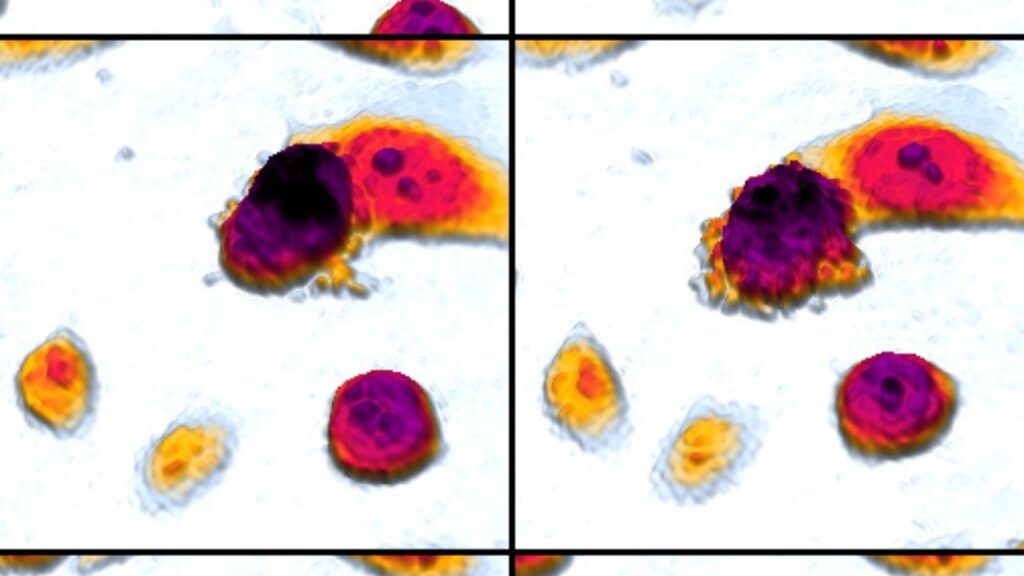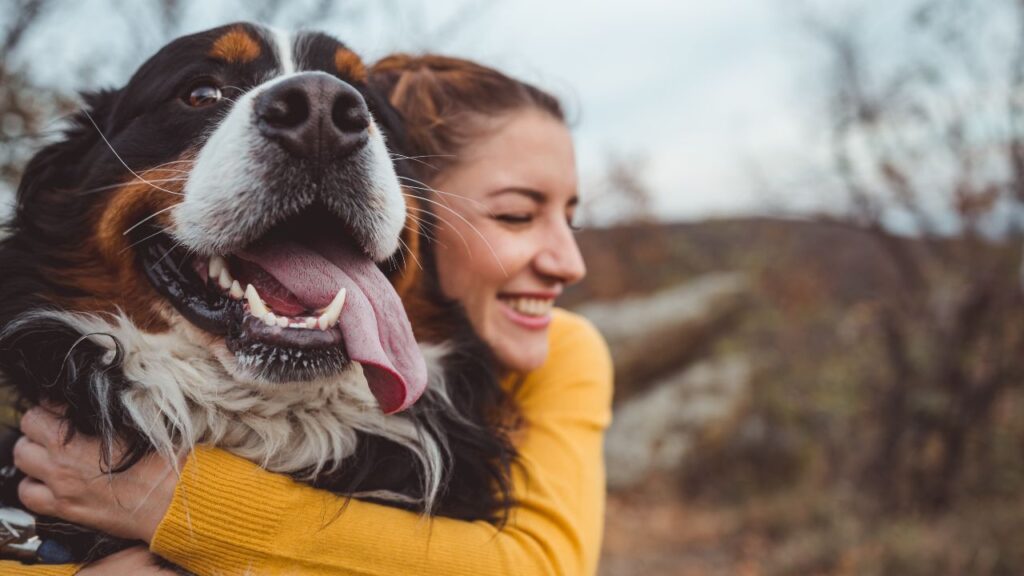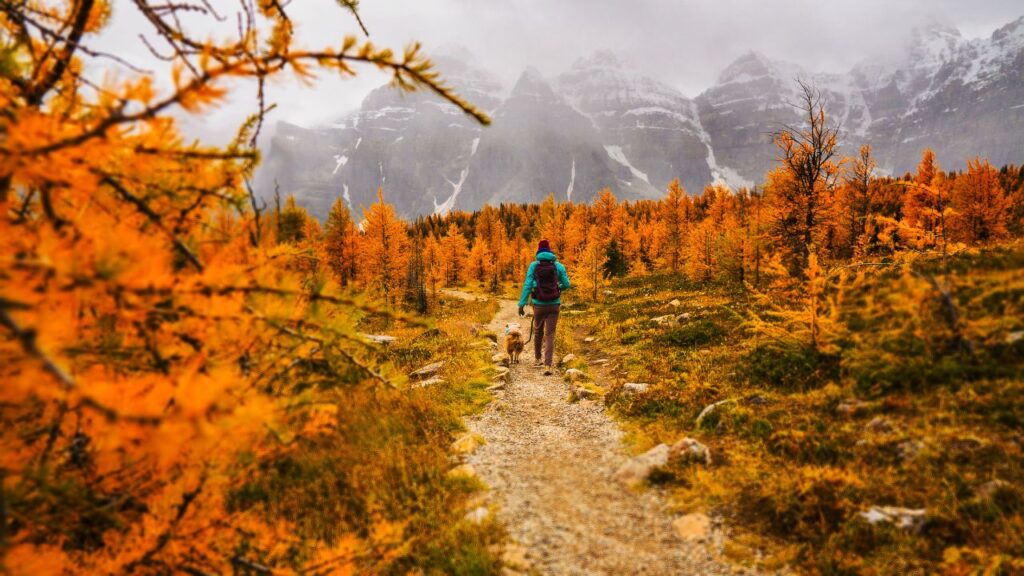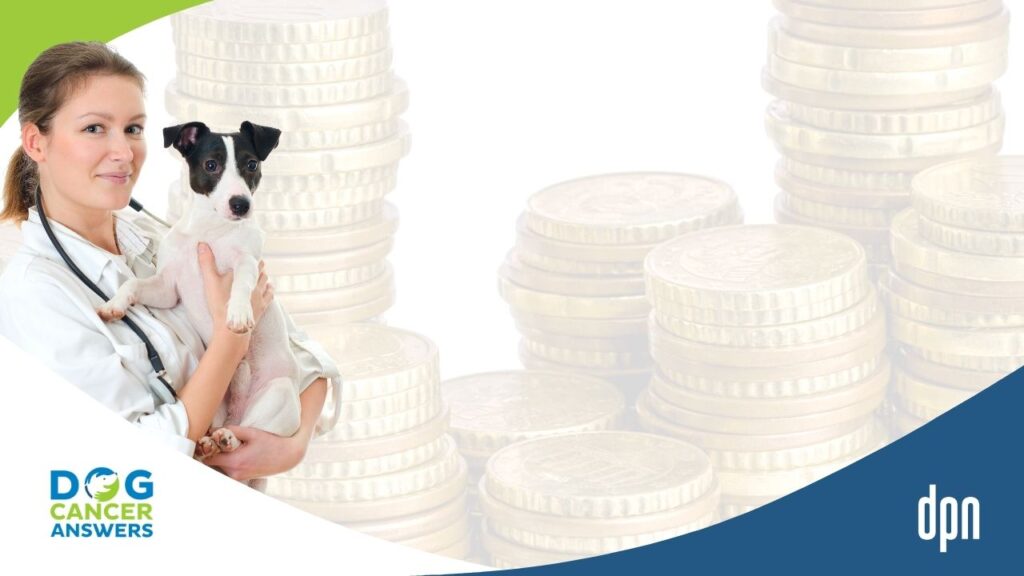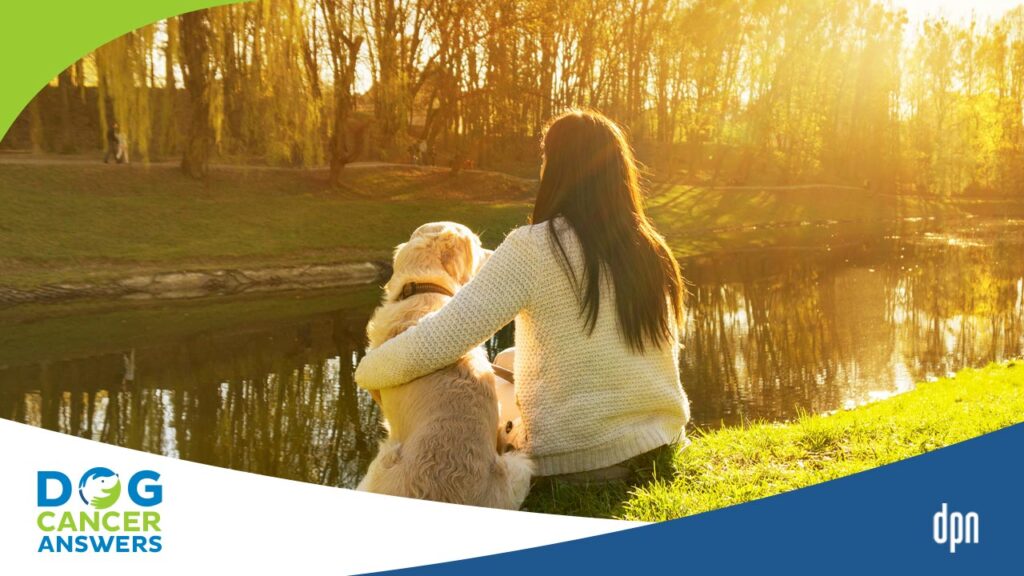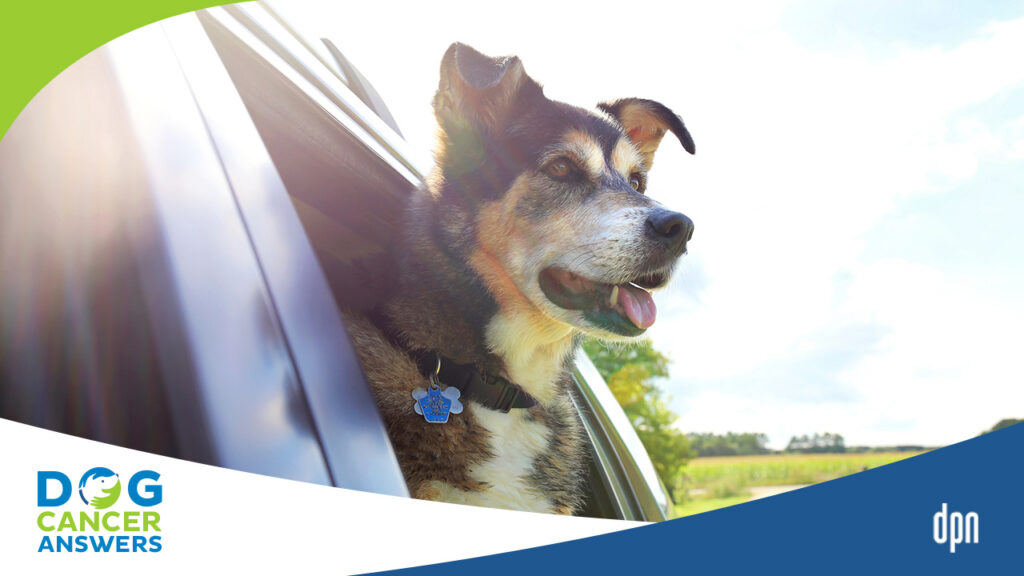EPISODE 234 | RELEASED December 11, 2023
Dog Cancer Tips: 7 Tactics for Handling Change | Molly Jacobson
Reeling as you try to cope with a dog cancer diagnosis? We’ve got you. Here are seven tips on how to handle the ever-changing landscape of dog cancer.
SHOW NOTES
Dog cancer mom Molly Jacobson has been helping thousands of people facing dog cancer since 2007, and she’s here to share seven practical tips associated with handling change.
Join our Facebook support group at https://facebook.com/groups/dogcancersupport
Call +1 808-868-3200 to leave a question on our Listener Line for a future show!
>> Molly Jacobson: You want a simple, quick, and permanent solution to your dog’s cancer. Unfortunately, dog cancer has other ideas. But don’t lose hope. Here are seven hard earned dog cancer tips to help you stay flexible, cope with the uncertainty, and ultimately, stay deeply connected to your dog.
>> Announcer: Welcome to Dog Cancer Answers, where we help you help your dog with cancer.
>> Molly Jacobson: I’m Molly Jacobson. I’m the editor in chief of DogCancer.com, where over 40 veterinary professionals, including veterinary oncologists and veterinarians, are churning out articles and podcasts and all sorts of other wonderful information resources for you as you go through your dog cancer journey.
I’m also the editor of the Dog Cancer Survival Guide, which is written by Dr. Demian Dressler and Dr. Sue Ettinger. I’m coming to you today not as a medical expert because I’m neither a veterinarian nor a human practitioner. I’m coming to you today as a dog mom who’s been exactly where you are, and also has had the privilege. of helping tens of thousands, really hundreds of thousands of people, all told, all over the world, since 2007, when we first started working in the dog cancer space.
I know exactly what you’re going through, I know exactly what’s happening for you, and I know what it’s like to be in your shoes. So I’m coming to you with my dog cancer tips that I’ve learned over the years, both from my own personal experience and also from helping people just like you.
So to help you today, I’m bringing you seven dog cancer tips associated with change, which is a big part of cancer. And if I had a magic wand, I would wave it right now and say, You are comfortable with change.
I also have one extra special dog cancer tip that comes from my own hard earned experience with my dog, Kanga, who died last year. And on her very last day, gave me the gift that inspired me to even think about this topic and created these seven tips for you. I hope I don’t tear up.
Dog cancer tip number one about change. This is a wilderness trek, not a road trip. Now, I’m 51 years old, so I well remember back in the day, AAA, the travel association, would give you a little TripTik for your road trip. So you could go to a AAA office, tell them where you were starting, and where you were going to end up, and where you wanted to go in between, and they would turn out a spiral bound TripTik, which was a collection of maps, but also recommendations.
So you would find out where all of the motels were. You would find out where the hotels were. You would get their recommendations about where to stay. If you were camping, they would outline all of the campgrounds for you. They would tell you where the gas stations were.
They would tell you where the rest stations with showers were. And they would mark out your trip, not just the fastest route or the most direct route, but also interesting byways you might take, alternate routes, and things you might see along the way. It was a really useful tool.
And there is nothing like that for dog cancer. I’m sorry, but that’s not what dog cancer is like. You go to a vet oncologist and you expect that they will give you a full map. That they will say, first we’re going to do this, and then we’re going to do that, and take this long, and then we’ll stop here, and we’ll have a little break, and your dog will play, and then we’ll get back on the rodeo, and we’ll do this other thing, and then we’ll do this thing, and then we’ll be done, and dog cancer will be gone.
It doesn’t work like that. This is more like a wilderness trek. This is more like being helicoptered out into the middle of, I don’t know, the wilderness in Alaska, where there’s no roads and the only way in and out is a plane. That’s what this is like. You’re helicoptered in. You and your dog are standing there in the middle of a wilderness.
You might see some deer trails, kind of hazily, but you’re not really sure what they are. And just like any wilderness trail, you don’t know where they go, and you don’t know what might be there. A trail might look really promising from where you’re standing, but end in a cliff in half a mile.
Another trail might look like it’s really difficult to navigate right now, but laid to a beautiful field full of flowers that makes it a lovely day’s stroll through the countryside. And unfortunately, at every one of those trails that you might see, there are signs that say, maybe this will work, or maybe this will get you where you want to go. They’re not well marked, and they’re not guaranteed.
There is no treatment of any kind, no dietary change, no supplement, no over the counter medication, no surgery or radiation, no chemotherapy regime that is going to work 100 percent of the time. There just isn’t something that does that for cancer. This is not a straightforward problem. This is a wilderness trek. It’s not a road trip. So prepare for not knowing. All the ins and outs of this. And for no one else really knowing it either.
Dog Cancer Tip number two about change. Change is the nature of cancer. Cancer changes everything. When you heard the word cancer, your life changed, right? Well, cancer has already changed everything inside your dog’s body.
That’s the nature of cancer. We think of cancer as a tumor, as a single, solitary, isolated lump. That’s not true. That’s one of the parts of cancer. Another part of cancer is that it has changed your dog’s metabolism. They now process food differently than they used to. It’s also changed your dog’s immune system.
It has also changed the ability of your dog’s cells to monitor themselves for health. Your dog’s cells no longer undergo normal apoptosis, which is normal cell turnover. That’s because of cancer. Cancer isn’t only changing your life on an emotional level or giving you extra stress, it’s literally changed the inside of your dog’s body in many different ways. So that’s an important thing to remember, that the nature of cancer is change.
Dog Cancer Tip number three is directly related to our last tip about change. Because cancer represents change, embrace it. Embrace uncertainty. Know that at every point along the way, you might feel uncertain. This is normal and you don’t have to take that as a sign that something’s wrong.
Here’s my super duper tip about how to handle that uncertainty. Think of yourself as a surfer. Surfers have to feel the water under their board and then pop up on top and ride the board for as long as they can stay stable and centered. They have to constantly be feeling the ocean underneath their feet and understanding what it’s doing almost before it does it.
They have to become one with the constantly changing environment around them. I really recommend you taking this metaphor for yourself and thinking of yourself as like a surfer. Your job is to stay balanced, and if you fall off the board, don’t worry. You’re tethered to it. You can climb back up and keep surfing. It’s not the end of the world.
Dog Cancer Tip about change number four. Choose your focus. This is what you want to tether yourself to. When you are thinking about yourself as a surfer, what should your board be? I suggest your board should be your relationship with your dog. That is never going to change.
You are always going to love your dog. Your dog is always going to love you. What will change is everything else. Cancer has already changed your life. Cancer has changed your dog’s body. Everything that you try to do may or may not be met with more changes on cancer’s part. You will never have anything as reliable to tether yourself to as your dog’s love for you and your love for them.
Too often, I see people make the mistake of focusing on outcomes instead of on their dog. It’s natural, and it’s normal, and you’re probably spending money on those treatments and supplements and dietary changes, so you want to know how they’re doing. I think you should track that, but what I don’t think you should do is focus on that as the main thing you are putting your attention on.
That’s because those outcomes are not certain. There’s no guarantee for any of them, and none of them work a hundred percent of the time, and sometimes they work but then stop working. So I want you to focus on your relationship with your dog rather than on the possible outcomes that might come from any of the treatment choices you’re making, because your dog is more reliably capable of giving you happiness, and the outcomes from your treatments might not.
They’re not always guaranteed, and so while we hope for the best, we have to prepare for the worst. If you choose a focus of your dog as your center, you’re much more likely to be focused on something that will give you happiness. Let’s pause to hear from our sponsors and then I’ll be right back with a lot more tips.
And now back to coping with change. Dog Cancer Tip number four about change. Don’t make the right choice. Make the best choice. Now, why do I say that? I say that because you can’t make the right choice. The right choice would be the choice that would be guaranteed to cure your dog’s cancer, and we don’t know what that is, ever.
Nobody ever knows what that is. So instead, the best thing for you to do is make the best choice. The best choice is the choice you’re going to be making after, you have talked to all of the experts, consulted your intuition, looked at your dog with really clear eyes and decided what they can and cannot or do and do not want to experience, and then make your choice based on all of those factors.
If you focus on making the best choice, not the right choice, I guarantee you’ll look back on this time five years from now and you will feel really good about your choices. You will know that you made the best choice you could with the information you had at that time. And that’s really all any of us can do.
Dog Cancer Tip number six about change is to expect to doubt. You’re going to doubt yourself. You’re going to doubt your veterinarian. You’re certainly going to doubt your veterinary oncologist. You’re going to doubt the people in your Facebook support group, which, by the way, you should join our Facebook support group.
Go to DogCancerSupport.com to get automatically redirected to the Facebook page. Dog Cancer Support is the name of the group. It’s wonderful. But you will go on there and you will post a question and you’ll get 20 different answers and you’ll wonder, why don’t I know what the right thing to do is? You are going to doubt.
Here’s why, a feature of the human brain is that when something goes wrong, it automatically kicks into analysis mode to try to figure out what happened in the past, what went wrong, and what could be done to prevent that from happening in the future. So what happens is whenever you’re in any kind of trouble.
Whether it’s small or large, your brain will sort of automatically start to question everything. That comes out as doubt. Did I make the right choice? Did I do the right thing? Am I doing the right thing now? Should I have done something else? Should the vet have done something else? Why didn’t the vet catch this earlier?
Why did the vet recommend this medication and not that medication? How come I didn’t hear about this treatment before that treatment? Why don’t I know how this is all going to work out? And of course, a lot of doubts about am I doing the right thing? Is it helping? How long am I going to get? And is this all worth it for my dog?
These are all normal thoughts to have. They’re associated with a very normal process in the brain where it’s trying to figure out how to prevent this problem from ever happening. So my recommendation for you is to make sure that when you find yourself doubting, think, oh, this might just be doubt about the problem.
It might not be that there’s anything wrong. Sometimes there might be something going on that you need to check out. But most of the time, most often, when we are experiencing doubt, it’s actually because our brain is trying to figure out how to prevent this from happening in the future. We don’t have to take it as a sign that there’s actually something wrong that we need to fix right now.
Dog Cancer Tip number 7 about change, take this attitude. We’ll see! Let’s try it. If you take the attitude every time you try something new, that it may or may not work, and we’ll see, it’ll be a lot easier on you because you’ll be lowering your expectations that this is some sort of a miracle cure, or this treatment is absolutely going to help.
If you take that more lighthearted, quizzical, we’ll see if it helps, attitude, that what happens is you set yourself up for success. Because what happens in dog cancer is you try something, it works or it doesn’t work, and you have to try something else. This is always the case. I’ve never known anybody who did one thing and then they were done.
Everybody has to do the same method of, I’m going to try it, I’m going to monitor to see how that worked. Then I’m going to choose whether to continue. And the way to do that is to start a new diet, start a new supplement, start a chemo protocol, and know that you will be assessing as you go along. When you commit to starting something, it doesn’t mean you commit to finishing it.
You can start, see how it goes, If it helps, continue, if it doesn’t make any changes, maybe there’s something else that works better. And if it hurts your dog, by all means, you’re going to stop and try something else. And then you’re going to move on from there and go through the exact same wait and see process.
So I suggest taking a wait and see, maybe it’ll help. And here’s a little sub bonus tip on this tip number 7. Take the attitude of, maybe this will help, not maybe this will cure, or maybe this will do it. Maybe this will help. If you want to help your dog, you’re much more likely to continue focusing on things that are helping and treating cancer, rather than grasping after things that might eliminate it.
Because as you know, most cancers, even if dogs get a very long time, and many do, in the end, cancer tends to win.
And that leads me to my last extra bonus tip around change, which is my own story about the day that Kanga’s cancer changed dramatically. It was July in 2022, and Kanga had been doing really, really well for months.
She’d been going on her walks. She’d been eating normally, eliminating normally. She was a little slower. She was not quite as vibrant. She didn’t play as often. But she was still smiling and eating and enjoying her life and it was really clear she had high quality of life even though she was nearing the end.
Then one morning we woke up to her breathing very heavily and we could tell she was really sucking in the air and it was really sounding like her lungs were occluded. And that day, we worried that we were nearing the end because my husband, James, and I had made a promise to ourselves, to each other, and to Kanga, that we would let her go when her cancer metastasized to her lungs.
That’s most importantly because Kanga was a very dignified dog and wanted to be able to breathe freely. And we knew that was a quality of life deal breaker for her. The other was that James’ father died of lung cancer many years ago, but one of his most profound memories is of his father describing the real agony that every breath was, and we did not want that for Kanga.
So on this day, we woke up and we heard that breathing and we thought, maybe today is the last day. And a couple of hours later, she was breathing so much harder that we knew today was the last day. And unfortunately, it was in the late afternoon. And we live in a island in the middle of the Pacific, and it’s actually kind of a rural part of Hawaii.
So there aren’t that many veterinarians, and not all of them are open late to help us with letting Kanga go that evening. So as James called around and tried to find somebody who was able to help us that evening, so Kanga didn’t need to have another evening or night of breathing so terribly and being in pain, I was petting her, and I said her name, and in the middle of her pain, she looked up at me and she smiled.
And my heart just broke open at that moment because she’d been with me for over a decade, but that was the first moment that I really truly received the full gift that Kanga had for me as my dog. Kanga was the first creature on this planet who I absolutely knew loved me all by herself and for me only as I was.
That no matter what was going on with me, Kanga looked at me and smiled. And I won’t tell you the details, but I haven’t had the easiest of lives, and this was truly the first time I ever felt completely loved by another creature, dog or human. So when Kanga smiled at me, it was like this transmission of love to me.
And I realized that that was what she had to teach me. That I needed to love myself the way that she loved me. And that’s my ultimate tip about change for you. Is that the love your dog has for you will never change. And it will never, ever leave you. Kanga is with me every day. And she is loving me every day. Whether she’s here in the flesh or not. It’s a permanent place in my heart that she created.
What cancer change does do to you is, I think, if you’re lucky, what it did to me, which is change you deeply. When you fully accept whatever it is that your dog has to teach you about yourself, about life, about love, then you will be changed forever.
In my experience, working with hundreds of thousands of people over the years, I can tell you for sure that they are wiser, stronger, and more loving as a result of their dog’s cancer. It is not an easy journey. And this is not a silver lining, because I don’t think there is a silver lining to a dog having cancer.
But I do believe that there’s an opportunity for all of us to become better humans when we escort our dogs with compassion and love through that process and fully receive whatever it is that they have to impart to us by the end of their lives, that never changes. I will have Kanga’s lesson for me for the rest of my life. And I know you will have your dog’s love for you, for the rest of yours.
So those are my dog cancer tips about change. I hope they’re useful to you. I hope they stay with you as some sort of a guide through your own wilderness trek. I wish I could make it a superhighway with well marked exits, but I just can’t.
But what I can do is be here for you. If you want more dog cancer tips, I’ve got dozens more to share. Make sure that you like and comment, subscribe to our YouTube channels, see more as they come out, and don’t forget to visit us at DogCancer.com where dozens of veterinary professionals, science journalists, and editors are working very hard day in and day out to be there for you during this trying time.
>> Announcer: Thank you for listening to Dog Cancer Answers. If you’d like to connect, please visit our website at DogCancer.com or call our listener line at (808) 868-3200. And here’s a friendly reminder that you probably already know, this podcast is provided for informational and educational purposes only. It’s not meant to take the place of the advice you receive from your dog’s veterinarian.
Only veterinarians who examine your dog can give you veterinary advice or diagnose your dog’s medical condition. Your reliance on the information you hear on this podcast is solely at your own risk. If your dog has a specific health problem, contact your veterinarian.
Also, please keep in mind that veterinary information can change rapidly, therefore, some information may be out of date. Dog Cancer Answers is a presentation of Maui Media in association with Dog Podcast Network.
Hosted By
SUBSCRIBE ON YOUR FAVORITE PLATFORM
Topics
Editor's Picks
CATEGORY

